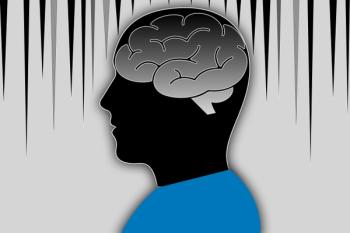
- Psychiatric Times Vol 35, Issue 12
- Volume 35
- Issue 12
Medical Aid in Dying: Ethical and Practical Issues for Psychiatrists
This CME helps to differentiate the roles of the attending physician and the consulting physician and to recognize the ethical concerns attendant to medical aid in dying.
Premiere Date: December 20, 2018
Expiration Date: June 20, 2020
This activity offers CE credit for:
1. Physicians (CME)
2. Other
All other clinicians either will receive a CME Attendance Certificate or may choose any of the types of CE credit being offered.
ACTIVITY GOAL
To goal of this activity is to understand what medical aid in dying (MAiD) is and what the eligibility requirements for MAiD are.
LEARNING OBJECTIVES
At the end of this CE activity, participants should be able to:
• Identify the countries as well as US states where medical aid in dying is legal
• Describe the eligibility requirement for medical aid in dying
• Differentiate the roles of the attending physician and the consulting physician
• Recognize the ethical concerns attendant to medical aid in dying
TARGET AUDIENCE
This continuing medical education activity is intended for psychiatrists, psychologists, primary care physicians, physician assistants, nurse practitioners, and other health care professionals who seek to improve their care for patients with mental health disorders.
CREDIT INFORMATION
CME Credit (Physicians): This activity has been planned and implemented in accordance with the Essential Areas and policies of the Accreditation Council for Continuing Medical Education (ACCME) through the joint providership of CME Outfitters, LLC, and Psychiatric Times. CME Outfitters, LLC, is accredited by the ACCME to provide continuing medical education for physicians.
CME Outfitters designates this enduring material for a maximum of 1.5 AMA PRA Category 1 Credit™. Physicians should claim only the credit commensurate with the extent of their participation in the activity.
Note to Nurse Practitioners and Physician Assistants: AANPCP and AAPA accept certificates of participation for educational activities certified for AMA PRA Category 1 Credit™.
DISCLOSURE DECLARATION
It is the policy of CME Outfitters, LLC, to ensure independence, balance, objectivity, and scientific rigor and integrity in all of their CME/CE activities. Faculty must disclose to the participants any relationships with commercial companies whose products or devices may be mentioned in faculty presentations, or with the commercial supporter of this CME/CE activity. CME Outfitters, LLC, has evaluated, identified, and attempted to resolve any potential conflicts of interest through a rigorous content validation procedure, use of evidence-based data/research, and a multidisciplinary peer-review process.
The following information is for participant information only. It is not assumed that these relationships will have a negative impact on the presentations.
Dan H. Nguyen, MD, has no conflicts to report.
Joel Yager, MD, has no conflicts to report.
Shannon Nugent, PhD (peer/content reviewer), has no conflicts to report.
Applicable Psychiatric Times staff and CME Outfitters staff have no disclosures to report.
UNLABELED USE DISCLOSURE
Faculty of this CME/CE activity may include discussion of products or devices that are not currently labeled for use by the FDA. The faculty have been informed of their responsibility to disclose to the audience if they will be discussing off-label or investigational uses (any uses not approved by the FDA) of products or devices. CME Outfitters, LLC, and the faculty do not endorse the use of any product outside of the FDA-labeled indications. Medical professionals should not utilize the procedures, products, or diagnosis techniques discussed during this activity without evaluation of their patient for contraindications or dangers of use.
For content-related questions email us at editor@psychiatrictimes.com;
for questions concerning CME credit call us at 877.CME.PROS (877.263.7767)
Terminally ill patients confront difficult end-of-life choices, which can include determining how and when they wish to hasten their death. Patients with less than six months to live, for whom suffering becomes unbearable, may opt for medical aid in dying. Medical aid in dying (MAiD), also known as “assisted suicide or physician-assisted suicide,” “medical assistance in dying,” “physician-assisted death,” “hastened death,” “right to die,” or “death with dignity,” entails lethal drugs being prescribed or supplied by a physician at the patient’s request and then self-administered by the patient with the aim of ending his or her life.
While suicide is defined by the act of intentional self-inflicted death, MAiD distinguishes itself from death by suicide in that the primary (although not proximal) cause of death is from a foreseeable underlying terminal illness. MAiD also differs from euthanasia, which is the active and intentional ending of a patient’s life by medical means with the active assistance of another person, usually a physician. Although psychiatrists would almost never serve as the attending physician to facilitate a MAiD request, psychiatrists may be asked to help assess a patient during the MAiD process. For a psychiatrist asked to participate in MAiD, this request can create ethical, moral, and clinical dilemmas.
Background
As of 2018, 10 countries including the United States (in some jurisdictions), have enacted laws permitting physician-assisted suicide; only 5 countries have legalized voluntary active euthanasia (Table 1).
In June 1997, the US Supreme Court decided that physician-assisted suicide did not violate the US Constitution and left it to the states to decide the legality of MAiD. Oregon, Washington, Vermont, California, Colorado, the District of Columbia, and Hawaii have enacted MAiD legislation-Montana legally permits MAiD based on a court decision (Table 2). In May 2018, a Riverside County Superior Court decided that the California physician-assisted suicide law was passed unconstitutionally during a special legislative session; the law is presently overturned but is undergoing appeal by the California Attorney General. Based on a judicial ruling that physicians participating with MAiD could not be prosecuted, Bernalillo County in New Mexico briefly permitted MAiD from 2014 to 2015, but this decision was struck down in the New Mexico Court of Appeals in August 2015, making physician-assisted suicide illegal in Bernalillo County and all of New Mexico.
As of now, 36 states have enacted laws prohibiting assisted suicide and 3 states prohibit assisted suicide by common law; in 4 states (Nevada, North Carolina, Utah and Wyoming), ambiguities exist regarding the legality of assisted suicide. However, twenty-four states are considering MAiD laws this year and/or in the most recent legislative session.
For specific details about the MAiD process, clinicians are strongly advised to refer to their own state’s laws and statutes. Generally, to qualify for MAiD, a person must be:
• Aged 18 years or older
• Mentally competent
• Have a medically diagnosed terminal illness that will lead to death within six months or less
• A resident of the state with MAiD (no minimum length-of-residency requirements have been thus far imposed)
The requesting patient must be able to self-administer and ingest the medications. Two physicians must agree in the determination that the above criteria have been satisfied without exceptions. The patient must navigate the process steps as laid out by state law to enact MAiD (Table 3).
Patients can choose to rescind their request to participate at any time during the MAiD process. They can also decide to use the medications at any time once the process is completed or to never use the medication or fill the prescription. In some instances, patients may be unable to take the medication after it has been prescribed (eg, if the patient is in a coma or dies, loses the neurological function to ask for and be cognizant of MAiD medication, or cannot physically swallow the 4 ounces of liquid containing MAiD medication within 2 minutes or less).
MAiD medications have usually consisted of lethal doses of barbiturates, but due to cost and access issues, physicians have more recently turned to specific cocktails of other medications to initiate MAiD. If patients complete all steps required by law to obtain MAiD medication, life insurance benefits should be unaffected. Life insurance documentation and death certificates will list the terminal disease that was expected to result in the patient’s death.
Aside from MAiD, patients may also try to hasten death by avoiding or withdrawing treatment(s), palliative sedation, and voluntarily stopping eating and drinking.
Demographics and statistics
Data from Washington, Oregon, Colorado, and California indicate that most patients prescribed MAiD medications have tended to be older than 55 years, white, presently or formerly married, educated beyond high school or GED, enrolled in hospice, medically insured, and have used MAiD medications to die at home.1-4 The most cited underlying illnesses for prescribing MAiD medications based on the four states plus Vermont were malignant neoplasms (eg, breast, lung, pancreas, prostate) followed by neuromuscular illness (most commonly amyotrophic lateral sclerosis), followed by non-cancer lung respiratory diseases or heart disease.5
Washingtonians and Oregonians who died by MAiD indicated their top three end of life concerns to be: “losing autonomy,” “less able to engage in activities making life enjoyable,” and “loss of dignity.”1,2 Other reasons included “losing control of bodily functions,” “being a burden on family, friends/caregivers,” and “inadequate pain control or concern about it.” Their lowest rated concern was the “financial implications of treatment.”
In these states, referrals to psychology or psychiatry for patients undergoing MAiD were rare. In Oregon (1998 to 2016), only 57 of 1127 Death with Dignity Act patients who died via MAiD (5.1%) were referred for psychiatric evaluation whereas in Washington (2009 to 2016), only 44 (4.2%) of 1056 were referred for psychiatric/psychological evaluation.1,2 In Colorado (2017) only one out of 69 patients prescribed MAiD medication required a mental health provider’s confirmation of capacity.3 No data are available from any state regarding the number of people who requested MAiD but were declined because of findings from a psychiatric or psychological evaluation.
Regarding public support for doctor-assisted suicide, a 2017 Gallup poll found that 67% of 493 randomly sampled adults favored MAiD.6 Among physicians, 57% of an (unscientific) online Medscape survey (N=7505) agreed that physician-assisted suicide or physician-assisted dying be allowed for terminally ill patients.7 In Canada, 72% of 528 psychiatrists surveyed supported MAiD under certain conditions, while 61.2% did not support MAiD for mental illnesses.8 Although neither the American Medical Association nor the American College of Physicians support MAiD; the American Psychological Association and the American Academy of Hospice and Palliative Medicine are neutral regarding MAiD. The American Psychiatric Association has no official position on MAiD but concurs with the American Medical Association’s position on medical euthanasia, stating “. . . a psychiatrist should not prescribe or administer any intervention to a non-terminally ill person for the purpose of causing death.”9
The role of the psychiatrist
Psychiatrists should first familiarize themselves with laws and institutional risk-management policies relevant to their personal situations. MAiD-participating physicians are protected if they comply in good faith with the specific laws of their state. Prudent psychiatrists should document all relevant conversations about MAiD, limitations in available therapeutic options, consultations with others, and any rationale for their decisions and actions. Psychiatrists participating in MAiD for states lacking MAiD laws potentially open themselves to civil penalties and/or criminal charges and/or the possibility of public consequences as a MAiD participant.
Psychiatrists should consider whether they wish to participate in MAiD, based on their personal values and level of competence in conducting capacity evaluations; no psychiatrist is obligated to do so. Participating in MAiD can elicit strong emotions and may result in conflicting interests between patients and psychiatrists; psychiatrists need to be aware of any personal cognitive, emotional, and/or social biases about MAiD that may impede their fiduciary role to the patient. Due to potential conflicts of interests, psychiatrists should be independent of the referral source (ie, not part of the same practice group) and not serve dually as both the treating clinician and as a MAiD evaluator.
The mental health MAiD evaluation
The main goal of the mental health evaluation is to determine whether the patient has decision-making capacity to pursue MAiD and to evaluate whether the patient can make rational decisions about MAiD, and if so, to what degree (Table 4). The mental health MAiD evaluation should entail a detailed review and a full psychiatric interview that includes:
• The patient’s chief complaint(s)
• A history of terminal and other illnesses
• Detailed psychiatric, medical, substance use, social,
and cultural histories
• Family, religious, and spiritual backgrounds
• Formal mental status exam
A formal evaluation of a patient’s understanding of MAiD should also be documented and can be organized along Appelbaum and Grisso’s10 four aspects of medical decision-making capacities: choice, understanding, appreciation, and reasoning. Although no validated instruments specific to MAiD currently exist, several assessment measures may assist in evaluating and rating salient symptoms (but these instruments by themselves do not suffice for comprehensive MAiD evaluation).11
The mental health MAiD evaluation should be formally documented, and all forms necessary for state law completed. Documentation should clearly state the patient’s capacity (or lack thereof) to pursue MAiD and can include treatment recommendations if germane (eg, referrals for psychotherapy, medication treatment). For especially challenging cases, psychiatrists can consider recommending second opinions or further testing, additional visits necessary to adequately complete the mental health portion of the MAiD evaluation, treatment recommendations that may restore capacity, and/or seek out consultations with professional colleagues. Providers who want to learn more about conducting a mental health MAiD evaluation can refer to available guides online or the academic literature (see Additional Reading).
Psychological considerations worth exploring
Studies show that most Oregonians requesting MAiD do not have a mental disorder such as depression but tend to have long-standing personality features of determination, persistence, wanting control, and avoiding dependence (as reflected in the top 3 reasons for pursuing MAiD).12-14 Whether through psychotherapy or the mental health MAiD evaluation, it is worth exploring patients’ perceptions of what MAiD will accomplish prior to and following their death, and what emotions drive their push for MAiD. Psychological approaches to patients exploring MAiD can tap strategies of motivational interviewing or therapies such as meaning centered-psychotherapy, dignity therapy, and other existentially oriented psychotherapies to help clarify patients’ perspectives about their goals of care, quality of life, terminal illness, and pending death.
Because family members and significant others of patients pursuing MAiD will invariably be affected, it is also worth exploring the patients’ relationships, whether they’ve communicated with others about MAiD, and MAiD’s anticipated consequences on others.
Ethical concerns
Psychiatrists asked to participate with MAiD can experience moral distress as to what is being asked of them, especially as psychiatrists are ordinarily expected to do their best to help prevent death by suicide. Conventional views hold that the desire for death by suicide in the context of a mental illness signifies compromised reality testing and is irrational, and that treating the mental illness may theoretically restore patients’ capacities to not have suicidal ideation.
However, terminally ill patients wanting MAiD challenge clinicians’ usual perspectives for thinking about individuals who want to hasten death. For these patients, the mere presence of a mental illness does not automatically preclude the patient’s ability to be rational or to have capacity to make medical decisions. The patient would also want to avoid hastening death if not for the terminal illness and its resulting consequences.
Involuntary psychiatric hospitalization or involuntary treatment of rational, terminally ill patients who want to hasten death, may also be unnecessarily harmful and not in the patient’s best interest. Clinicians may find further assurance in an official position statement published on October 31, 2017 by the American Association of Suicidology (AAS), “Suicide” is not the same as “Physician aid in dying.”15 This statement recognizes that “Although there may be overlap between the two categories, legal physician assisted deaths should not be considered to be cases of suicide and are therefore a matter outside the central focus of the AAS.”
Conclusion
Challenges remain concerning what psychiatrists ought to do regarding patients who are rational, terminally ill, and whose wishes to pursue MAiD are not due to mental illness (or where treatment of such illness falls beyond realistic treatment parameters). What psychiatrists will do ultimately rests on their personal beliefs and inclinations, and what local legislation allows. Everywhere, palliative psychiatric care should be considered where treatments focus on what the psychiatrist can do to help alleviate or mitigate any psychiatric symptoms of distress. Beyond palliation, as patients request MAiD in the US, mental health professionals will play an increasingly important role to help those who are suffering with a terminal illness.
CME POST-TEST
Post-tests, credit request forms, and activity evaluations must be completed online at
PLEASE NOTE THAT THE POST-TEST IS AVAILABLE ONLINE ONLY ON THE 20TH OF THE MONTH OF ACTIVITY ISSUE AND FOR 18 MONTHS AFTER.
Disclosures:
Dr Nguyen is Consultant Liaison Psychiatrist, Kaiser Permanente, and Dr Yager is Professor, Department of Psychiatry, University of Colorado School of Medicine, Aurora, CO.
References:
1. Washington State Department of Health. Death With Dignity Data.
2. Oregon Public Health Division, Center for Health Statistics. Oregon Death With Dignity Act Data Summary, 2016.
3. Colorado Department of Public Health and Environment. Medical Aid in Dying.
4. California Department of Public Health. California End of Life Option Act 2016 Data Report.
5. Vermont Department of Health. Report to the Vermont Legislature: Report Concerning Patient Choice at End of Life.
6. Wood J, McCarthy J. Majority of Americans remain supportive of euthanasia. Gallup.
7. Reese S. Medscape Ethics Report 2016: Life, Death, and Pain. Medscape. 2016.
8. Rousseau S, Turner S, Chochinov HM, et al. A national survey of Canadian psychiatrists’ attitudes toward medical assistance in death. Can J Psychiatry. 2017;62:787-794.
9. American Psychiatric Association. Position Statement on Medical Euthanasia. APA Official Actions.
11. Goy E, Ganzini L, Farrenkopf T. Mental health consultation. Dunn P, Reagan B, Tolle SW, Foreman S, Eds. The Oregon Death With Dignity Act: A Guidebook for Health Care Professionals. Portland, OR: Oregon Health and Science University.
10. Appelbaum PS, Grisso T. Assessing patient’ capacities to consent to treatment. N Engl J Med. 1988;319:1635-1638.
12. Ganzini L, Goy ER, Dobscha SK. Prevalence of depression and anxiety in patients requesting physicians’ aid in dying: cross sectional survey. BMJ. 2008;337:a1682.
13. Ganzini L, Goy ER, Dobscha SK. Oregonians’ reasons for requesting physician aid in dying. Arch Intern Med. 2009;169:489-492.
14. Ganzini L, Dobscha SK, Heintz RT, Press N. Oregon physicians’ perceptions of patients who request assisted suicide and their families. J Palliat Med. 2003;6:381-390.
15. American Association of Suicidology. Statement of the American Association of Suicidology: “Suicide” Is Not the Same as “Physician Aid in Dying.”
Articles in this issue
about 7 years ago
Introduction: Turning Suicide Prevention Science Into Actionabout 7 years ago
Words Matter: The Language of Suicidal Self-Directed Violenceabout 7 years ago
Child and Adolescent Suicide and Self Harm: Treatment and Preventionabout 7 years ago
Reducing Suicide Risk: The Role of Psychotherapyabout 7 years ago
When Your Child Is Sickabout 7 years ago
Jacques Lacan: The Best and Least Known Psychoanalystabout 7 years ago
Solving the Mystery of Military Mental Health: A Call to Actionabout 7 years ago
Listening to Dead Patientsabout 7 years ago
Giving Thanks for These PsychiatristsNewsletter
Receive trusted psychiatric news, expert analysis, and clinical insights — subscribe today to support your practice and your patients.







